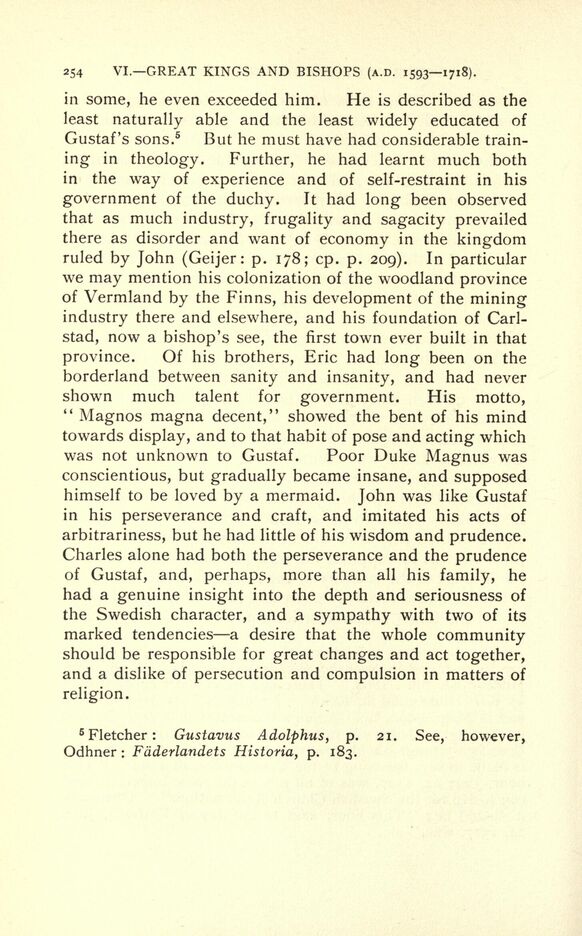
Full resolution (JPEG) - On this page / på denna sida - VI. From the Upsala-möte to the death of Charles XII. The Great Kings and the Great Bishops (1592—1718 A.D.)

<< prev. page << föreg. sida << >> nästa sida >> next page >>
Below is the raw OCR text
from the above scanned image.
Do you see an error? Proofread the page now!
Här nedan syns maskintolkade texten från faksimilbilden ovan.
Ser du något fel? Korrekturläs sidan nu!
This page has never been proofread. / Denna sida har aldrig korrekturlästs.
2 54 VI. GREAT KINGS AND BISHOPS (A.D. 15931718).
in some, he even exceeded him. He is described as the
least naturally able and the least widely educated of
Gustaf s sons.5
But he must have had considerable train
ing in theology. Further, he had learnt much both
in the way of experience and of self-restraint in his
government of the duchy. It had long been observed
that as much industry, frugality and sagacity prevailed
there as disorder and want of economy in the kingdom
ruled by John (Geijer :
p. 178; cp. p. 209). In particular
we may mention his colonization of the woodland province
of Vermland by the Finns, his development of the mining
industry there and elsewhere, and his foundation of Carl-
stad, now a bishop s see, the first town ever built in that
province. Of his brothers, Eric had long been on the
borderland between sanity and insanity, and had never
shown much talent for government. His motto,
"
Magnos magna decent," showed the bent of his mind
towards display, and to that habit of pose and acting which
was not unknown to Gustaf. Poor Duke Magnus was
conscientious, but gradually became insane, and supposed
himself to be loved by a mermaid. John was like Gustaf
in his perseverance and craft, and imitated his acts of
arbitrariness, but he had little of his wisdom and prudence.
Charles alone had both the perseverance and the prudence
of Gustaf, and, perhaps, more than all his family, he
had a genuine insight into the depth and seriousness of
the Swedish character, and a sympathy with two of its
marked tendencies a desire that the whole community
should be responsible for great changes and act together,
and a dislike of persecution and compulsion in matters of
religion.
5
Fletcher : Gustavus Adolphus, p. 21. See, however,
Odhner : Faderlandets Historia, p. 183.
<< prev. page << föreg. sida << >> nästa sida >> next page >>